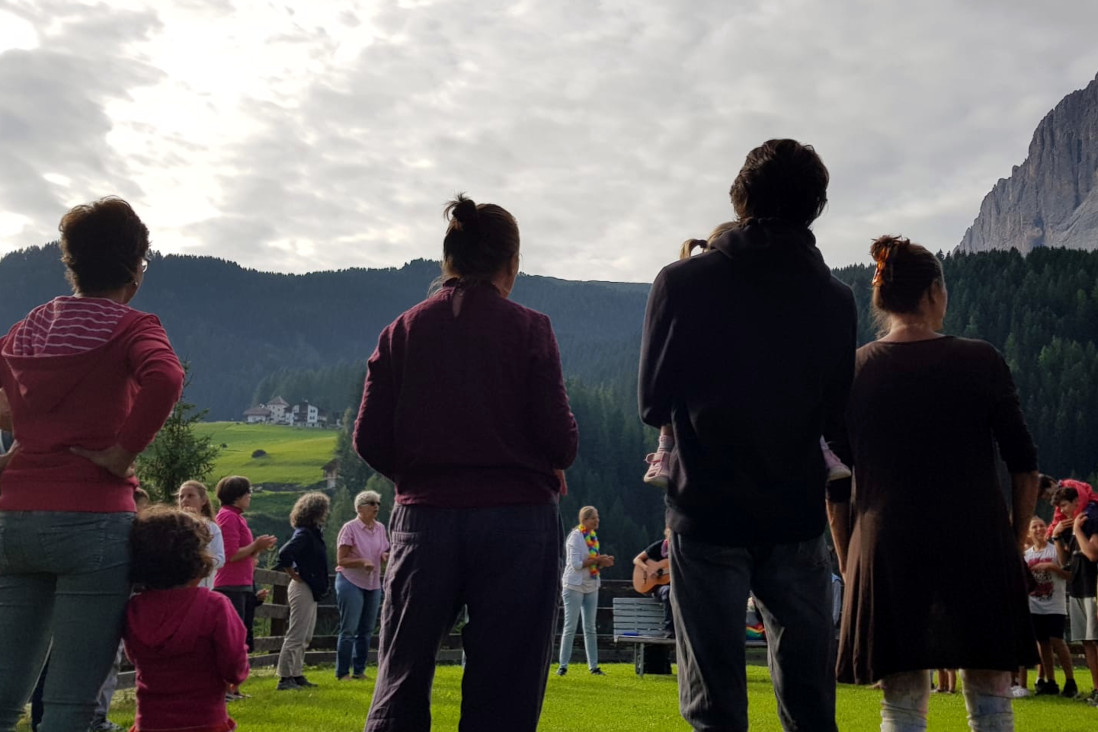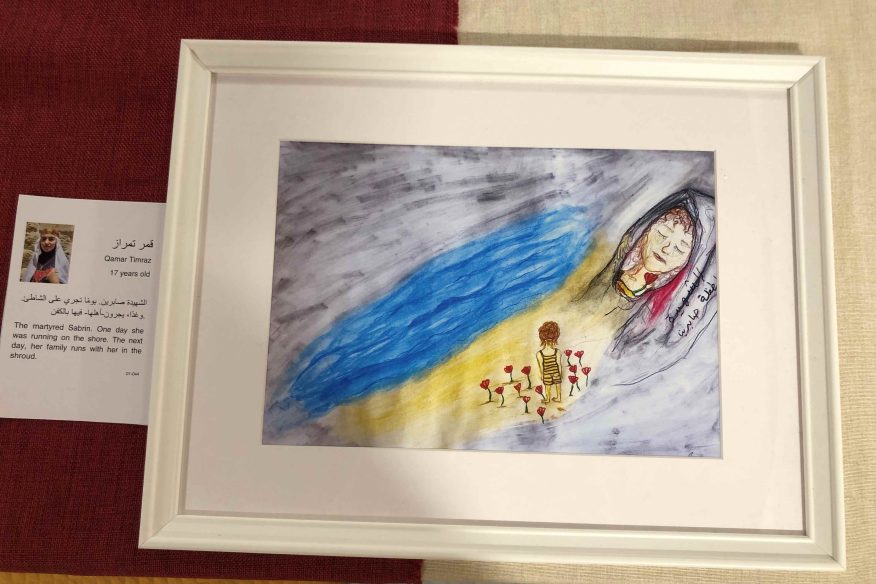Biblical programs at the School of Psychodrama

The School of Biblical Psychodrama will be resuming again this year in Gallarate. The aim of the school is to offer basic tools to plan group programs through the Action Methods. The Action Methods focus on acting out and visibly expressing a person’s or group’s mental images of a given event, e.g. a biblical story.
The course is made up of a combination of experiential activities and lectures on theory and methodology.
The school is divided into two levels: PROPEDEUTICAL COURSE: 4 weeks during the first year with the aim of introducing the method and experiencing the Gospel message in a direct way.
BASIC Course: 2 years, for a total of 10 weekends (5 weekends per year) with the aim of providing methodological tools for leading Bible groups with Action Methods.
We asked Margherita Mandelli from the school team a few questions to find out more about the course.
What is Biblical Psychodrama?
“Biblical Psychodrama is a process of a psycho-dramatic nature, which starts from and is stimulated by the decision to engage with a biblical text and its message through group and team work. Biblical psychodrama uses some of the tools and techniques of classical psychodrama: the aim is to transform the word into action, feeling and movement, so that an encounter takes place between the participants and with the word that involves not only the mind but the whole person. When staging psychodrama, the biblical text comes to life and becomes the action of the stage, thanks to the different “actors” who, here and now, play the roles suggested by the text itself. Through the staging of the Word, the symbolic values of the text emerge, which speak to the inner self of each person and lay the foundations for possible change. It is not a matter of faithfully reproducing the text, nor of explaining or reciting it, but of entering authentically into it with one’s own life, one’s own experience, in order to really encounter and explore the different roles and counter-roles, to give them voice and action. In this way the text becomes relevant and able to speak in the ‘here and now’ of each person”.
Why can it be useful for an animator?
“Biblical psychodrama leads to a greater understanding of the person, but also to a deeper understanding of the experiences of the biblical characters and therefore of the deeper meaning of the text itself (the humanity of God). The biblical text has a therapeutic power: the word presents itself as a word that does what it says and invites us to experience it, inspiring confidence in those who encounter it. This methodology transforms the word into flesh and movement, actualises the emotional aspects of the story, transforms the spoken and heard word back into a word-event and a personal encounter with the other, makes it visible and anticipates in symbol and ritual what it is capable of doing in the real life of people. The symbol, born or transformed in action, reaches the intimate world to the point of interacting with the territory of the unconscious, freeing energies that are often kept chained or inert, thus creating the “psychic” basis for change. Biblical psychodrama, as a scheme addressed to and developed in a group, brings with it all that is formative and humanly significant that comes from working in a profound, spontaneous and sincere way in relationship with others”.
What is the connection with Ignatian spirituality?
“In no. 47 of the Spiritual Exercises, Ignatius of Loyola gives some indications on the composiciòn viendo el lugar, more simply known as the ” composition of place”; it is a mental exercise where the retreatant is invited to see with his imagination the physical place where the scene on which he will pray takes place, or, if it is a contemplation on an abstract theme (e.g. sin), to concretise the themes present through a visual symbol. The presence of the “as if” perspective, applied to “invisible” contemplation, recalls the symbolic dimension on which psychodrama often operates through the technique of concretisation. The exercitant is then invited to “enter” the scene he has just “constructed” by looking at the people, listening to what they say and seeing what they do. In fact, the invitation to “look at the people, listen to what they say, observe what they do” pushes the exercitant to go beyond what is explicit in the “letter” of the text and to step more deeply into the shoes of its protagonists. The Exercises emphasise the importance of feeling and empathy at several points. Ignatius assumes that the Exercitant is able to forget himself and take on the feelings of the “others” who occupy the place where the story told by the text takes place. Some texts describe a particular way of carrying out the function of feeling: This is the so-called application of the five senses. Thus in nn. 66-70: The driving force behind the dynamic process of the Spiritual Exercises lies in the ability of the retreatant to enter into the “there and then” of the biblical scenes by bringing them to life in the “here and now” of his own inner experience.
In your experience, what has struck you most about the courses?
“I have experimented with this method myself, and what always strikes me is how much a biblical passage that I have read and meditated on many times before can become new and alive in a different way, addresses my life and helps me to discover something about myself that I was unaware of. This can certainly happen with ‘simple’ meditation and prayer, but I can assure you that through biblical psychodrama the characters become travelling companions and the Good News something that goes straight to the heart and involves the whole person”.
How many people, groups, use this technique?
“At the moment, this methodology is not yet well-known; there is a national network that brings together those who have attended the school and completed the course and who use this methodology. This network continues to offer moments of formation and discussion. Biblical psychodrama meetings are often requested by youth groups (scouts, ACR animators), but also by adult groups. There are also international links, particularly with Poland and Spain, with which we are trying to deepen a common way of collaboration and exchange”.
